





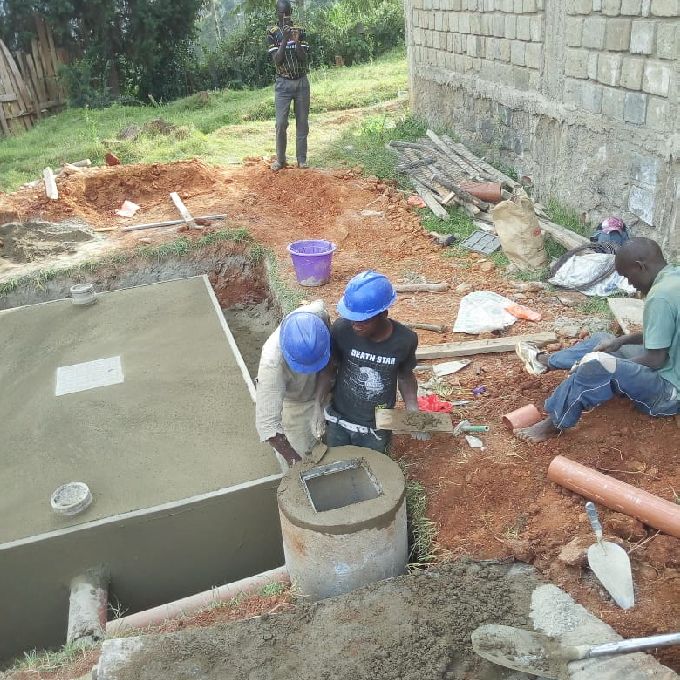





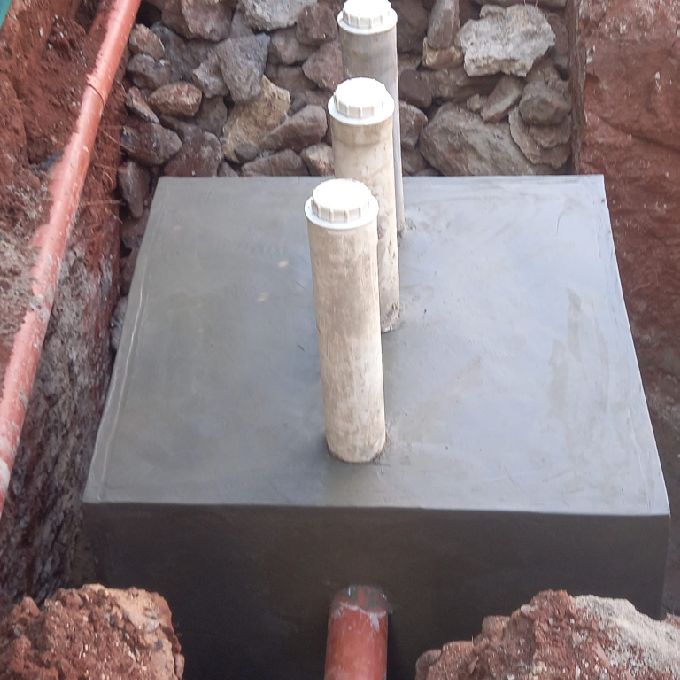





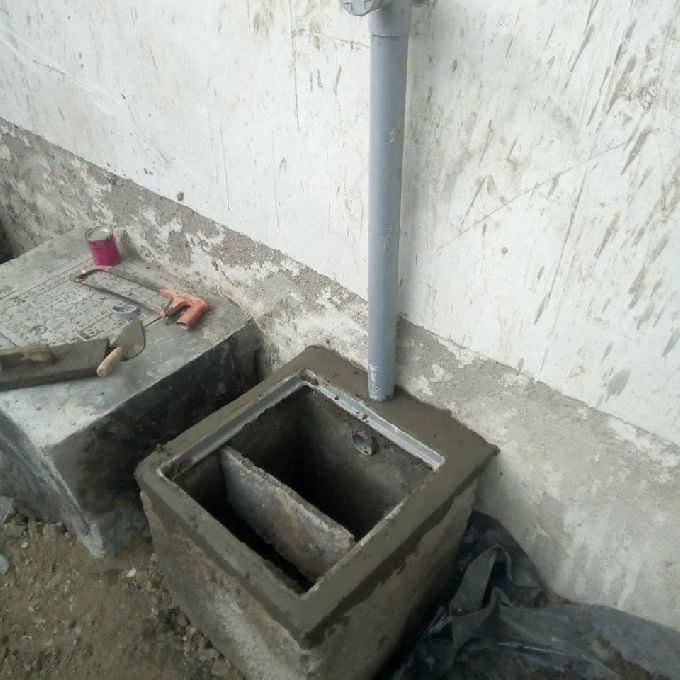





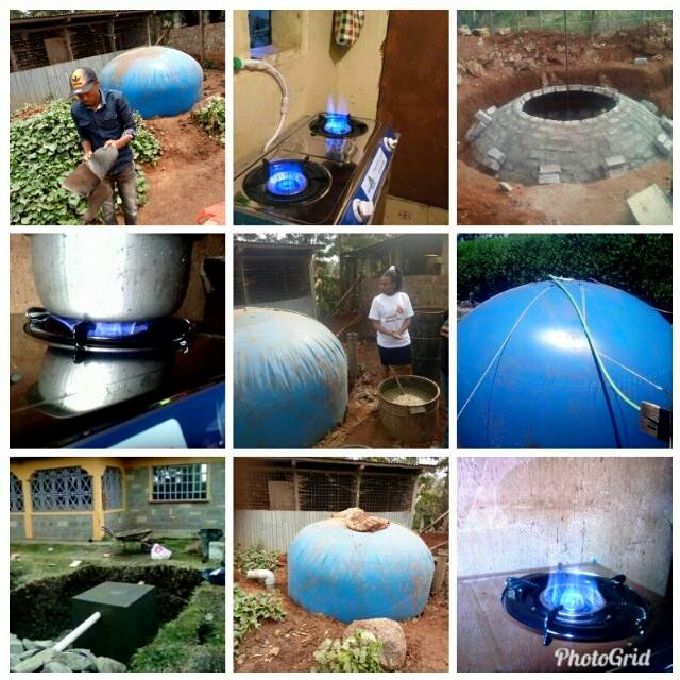





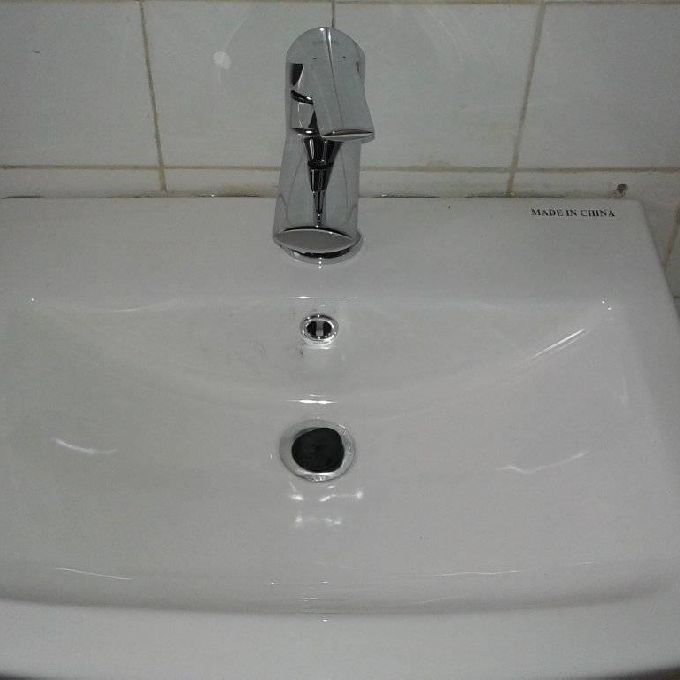









































Biogas is an eco-friendly and renewable source of energy that can be harnessed from organic waste materials through a process known as anaerobic digestion. Biogas plants are becoming increasingly popular across industries to reduce waste and carbon emissions while generating energy. However, operating and maintaining a biogas facility can be complex, requiring specialized knowledge and skills. This is where biogas installation experts and plant repair operators come in. These professionals are trained to design, install, and maintain biogas systems for companies. They ensure these systems run efficiently and effectively, reducing downtime and maximizing energy output. Additionally, they are equipped to repair any issues that may arise, minimizing the environmental impact and the company's operations. In summary, biogas system specialists and plant maintenance crew are essential to the success of any facility. They provide the technical expertise and support necessary to keep the plant running smoothly while minimizing waste and promoting sustainability. More information about finished projects that all experts have done is available on the eWak platform.
Are You a Biogas System Specialist? >> Register an Expert Account on the eWak Online Jobs Posting Platform & be listed above!
Renewable energy facilities utilizing organic matter decomposition offer a valuable, sustainable power source. However, they demand consistent maintenance and periodic repairs to guarantee efficiency and safety. Professionals specializing in the upkeep and restoration of these energy systems are integral in preserving their continuous operation and extending their service life. Their responsibilities encompass maintaining and repairing various system elements, including digesters, gas storage tanks, and gas engines. In the following discussion, we will delve into the roles and responsibilities of these maintenance and troubleshooters, the constituent components of such energy facilities, and the strategies for their upkeep to ensure peak performance.
Biogas facilities are complex systems requiring regular maintenance to ensure efficient and safe operation. Proper maintenance is critical to prevent breakdowns, reduce downtime, and increase the plant's lifespan. Biogas systems can be maintained through;
In conclusion, maintaining the facility requires regular inspections, cleaning, lubrication, monitoring gas production, preventive maintenance, training and safety measures, and regular upgrades and improvements. Proper maintenance can ensure the efficient and safe operation of the plant, increase its lifespan, and reduce maintenance costs. It is crucial to have a qualified and experienced team to perform maintenance tasks and ensure the plant's proper operation.
Biogas generator systems are becoming increasingly popular as sustainable and eco-friendly energy sources. They are used to generate electricity, heat, and even fuel for transportation. However, biogas energy setups require maintenance and repair to operate efficiently and safely like any other mechanical system. Technical repair teams play a critical role in the maintenance and repair of the system, which includes;
Maintenance technicians play a critical role in the system's maintenance and repair. They identify and diagnose problems, repair and replace components, perform preventive maintenance, document maintenance and repairs, work safely, and troubleshoot problems. It is essential to have qualified and experienced system repair experts in an anaerobic digester plant to ensure that it operates safely and efficiently.
Hence, the individuals responsible for the upkeep and repair of facilities dedicated to harnessing renewable energy through organic matter decomposition play a pivotal role in guaranteeing these installations' optimal functionality and productivity. Consistent and diligent maintenance, coupled with vigilant monitoring, stand as indispensable practices in safeguarding against unexpected failures and, consequently, in sustaining the uninterrupted generation of gas and other valuable byproducts. An in-depth comprehension of the integral components inherent to these energy systems and the roles executed by maintenance and repair operatives becomes instrumental in ensuring the longevity and efficient utilization of these precious energy resources.
Renewable energy derived from organic materials like agricultural waste, food remnants, and sewage sludge offers the potential to generate biogas, a valuable resource. Establishing such an energy production system is multifaceted, demanding meticulous attention to detail in the planning and execution phases. The following sections will investigate the critical determinants impacting the expenses incurred while establishing this renewable energy source. Furthermore, we will outline the various stages of setting up this system. Additionally, we will explore the pivotal role of biogas system setup professionals in ensuring the seamless operation of this sustainable energy initiative. Lastly, we will highlight the attributes to consider when selecting a service provider specializing in creating and maintaining organic material-based energy systems.
[Create an eWak Expert Account HERE and be Listed as a Biogas System Installation Expert like others above!]
Biogas is an environmentally friendly renewable energy source gaining popularity worldwide. The biogas setup process is complex and intricate, requiring specialized knowledge and skills. One of the most critical roles in the biogas system setup process is that of a biogas setup technician. Functions of a Biogas system Professional:
Ultimately, a biogas installation technician plays a crucial role in successfully installing and operating a biogas setup. They are responsible for site preparation, installation, testing and commissioning, maintenance and repair, safety, and training. Therefore, choosing a qualified and experienced biogas system expert with the necessary skills, knowledge, and expertise is essential to ensure the installation process's success and the biogas system's efficient operation.
Biogas is an environmentally friendly alternative energy source that is gaining popularity as a renewable energy source. A bioenergy plant installation involves a complex process that requires specialized knowledge, skills, and equipment. Therefore, choosing the right system setup company is essential to ensure the installation process's success and the system's efficiency. We will discuss the key factors when selecting a biogas system installation company. We'll cover everything from the company's experience and expertise to its reputation, certifications and licenses, safety measures, cost, warranty and after-sales support, and customer service. In the end, you'll clearly understand what to look for in a biogas setup firm, enabling you to make an informed decision that ensures your system's successful installation and operation.
In summary, when looking for a biogas setup installation firm, you should prioritize experience, expertise, reputation, certifications and licenses, safety measures, cost, warranty and after-sales support, and customer service. Considering these factors, you can select a reliable and trustworthy biogas setup company to ensure your biogas system's successful installation and operation.
The cost of installing a biogas energy system can vary widely depending on several factors, such as the size and complexity of the plant, the type of feedstock used, and the plant's location. In general, larger plants are more expensive to install than smaller ones, and plants that process more complex feedstock may require additional equipment or infrastructure. One of the main costs associated with the system installation is the cost of the digester, which is the primary component of the plant that converts organic material into biogas. Depending on the size and type of digester, the cost can range from a few thousand to several hundred thousand dollars.
Other costs associated with biogas energy system installation
Overall, the cost of installing a biogas facility can range from tens of thousands to millions of dollars, depending on the size and complexity of the project. In conclusion, harnessing the potential of biogas as a renewable energy source offers substantial environmental and economic advantages. However, establishing a biogas energy system involves intricate planning and execution. The investment required for such an energy system can fluctuate significantly due to system size, complexity, feedstock variety, and geographic location. Skilled technicians specializing in biogas system installation are pivotal in ensuring a successful setup and its subsequent maintenance. Several companies specialize in these services, offering a comprehensive array of offerings, including site evaluation, system design, equipment installation, and ongoing maintenance and support. To access more information about our biogas experts visit our eWak website and register as a sonko on the eWak platform with us to get more details on our available experts and other services we offer.